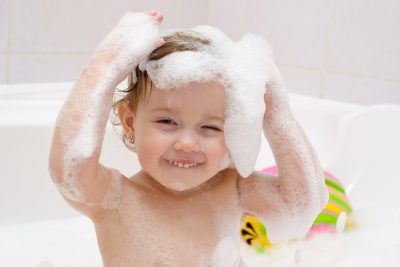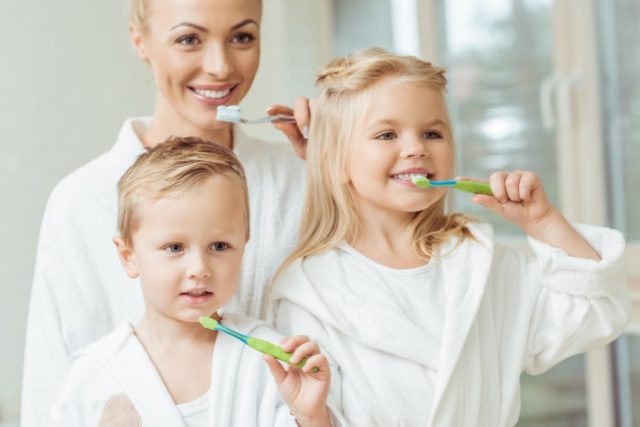
It is important that both at home and school we can convey to children the importance of hygiene habits. Good hygiene can prevent children from falling ill and promote their well-being and interpersonal relations. Be sure to teach them these habits step by step so they assimilate them better.
One of those hygiene habits is that they have their hygiene tools.
This is the first step in getting them used to maintain good hygiene habits. Children must have their toothbrush and toothpaste, comb, soap, towels, and feel responsible for them.
In addition to the ones they have at home, it is important to encourage them to carry a small bag with some soap or disinfectant gel, a brush, and toothpaste to school.
Get them used to washing their hands and clip their nails.

The hands are one of the most important vehicles for transmission of infections, so it is necessary to pay close attention to keeping them constantly clean.
They must learn how to properly wash their hands with soap and water, especially before handling food and eating, after touching animals, before and after using the bathroom and, of course, every time they play.
They can also use a disinfecting gel that they can make themselves with the help of an adult and always carry it in their hygiene bag.
Taking a shower or bath daily.
If bath time becomes fun, it won’t be difficult to establish a routine. As they grow, they must be taught this hygiene habit, washing each part of their body so that they can acquire autonomy for this daily routine, the bath should be at night.
Proper hair grooming.
It is not necessary to shampoo their hair every day, but it is necessary to clean it. To do this, children should be taught to brush their hair every day and, if it is long, properly comb.
When they are old enough to start washing it on their own, they should learn to lather it and especially rinse it so that there is no soap left. It will be necessary for some time to supervise that they have washed their hair properly, but they will end up doing it properly by themselves.
Brushing teeth after every meal is also essential.

Brushing the teeth after each meal is a fundamental hygiene habit that children must learn from an early age to prevent tooth decay, bad breath, and possible illness.
From 18 months of age on, they can be taught with the brush to get in contact with the oral hygiene routine, and from the age of three, they can use special toothpaste for children.
You can supervise it to be sure that they learn a proper brushing technique, brushing just before going to bed is more important since it is at night when the proliferation of bacteria is most active. Dentists advise that the process takes around 10 minutes.

